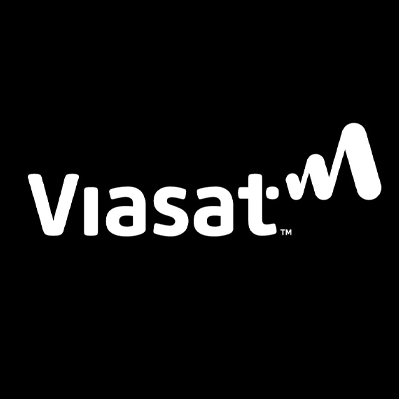Description
Viasat is an American communications company based in Carlsbad, California, with additional operations across the United States and worldwide. Viasat is a provider of high-speed satellite broadband services and secure networking systems covering military and commercial markets.
History
Viasat was co-founded in May 1986 by Mark Dankberg, Mark Miller and Steve Hart. Mark Dankberg became chief executive officer and Mark Miller and Steve Hart became chief technical officers. Viasat received venture capital financing of $300,000 from Southern California Ventures. In December 1996, Viasat had its initial public offering (IPO). In 1999, Viasat moved into its headquarters in Carlsbad, California. Viasat launched a spin-off company, TrellisWare Technology, in 2000. The self-funded company focuses on solutions for ground communications problems.
The acquisition of the satellite networking business of Scientific-Atlanta for $75 million in cash in 2000 helped Viasat to focus on providing technology for interactive services to businesses.
In 2001, Viasat started working with Boeing on Connexion broadband for airliners. The company acquired Lockheed Martin Global Telecommunications' products unit, Comsat Laboratories in 2001 for an undisclosed amount. Comsat Laboratories is Viasat's technology and product development group for communication systems focusing on developing new technologies for extremely bandwidth efficient, high data rate satellite transmission. In 2001, Viasat also purchased US Monolithics, a company focused on designing high frequency broadband circuitry, for around $30 million.
Eutelsat entered an agreement in 2001 to use Viasat's LinkStar high performance IP terminals for their broadband multimedia network over Ku-based FSS satellites. Viasat entered a joint venture in 2001 with Loral Skynet to found Immeon Networks to develop the Immeon satellite bandwidth-on-demand service sold in monthly managed service plans. ABC News used Immeon to improve its voice and data-communications for on-location news.
Viasat won a contract with WildBlue Communications worth $16 million in March 2001 to build WildBlue's satellite modems to support the company's initial service launch. WildBlue signed a second contract with Viasat in 2001 for $17 million and Viasat would develop and produce satellite modem termination systems for six gateway stations.
WildBlue launched its internet service in October 2004 after gaining Ka-band transponder capacity on the Telesat Anik F2 satellite. It conducted formal technical testing until January 2005, followed by nationwide beta testing before the first residential retail customers had services installed in June. The WildBlue service was upgraded in 2007 using the satellite WildBlue-1, which launched the year before.
In 2005, Viasat acquired Efficient Channel Coding, a producer of broadband communication integrated circuits and satellite communication systems, which gave Viasat access to the IPStar satellite broadband market. Enerdyne, a defense technology firm, was acquired by Viasat in 2006 for an initial investment of $17 million adding its EnerLinks II video data link equipment to Viasat's defense products.
Viasat acquired JAST Antenna Systems, based in Lausanne, Switzerland, in 2007. JAST develops microwave circuits and antennas for terrestrial and mobile satellite applications.
On December 15, 2009, Viasat bought WildBlue, based in Colorado, for $568 million in cash and stock. Wildblue also brings its WildBlue-1 satellite and Ka-band capacity on Telesat's Anik F2 and about $75 million in cash and $45 million in tax losses, bringing the net purchase price to about $445 million. In 2010, Viasat bought Stonewood Group of Dorset, England, an encryption company, for $20 million in cash and stock.
In January 2013, Viasat broke ground for its expansion in Duluth, Georgia, the second largest location after the company's headquarters in Carlsbad, California at the time.[citation needed] In 2015, Viasat opened a 116,000 square foot facility at the Arizona State University Research Park in Tempe, Arizona. The Arizona campus focuses on design and manufacturing of advanced microwave communication and radar products, radio frequency systems and cybersecurity. In 2016, Viasat announced a research and development facility in Chennai, India. In 2017, Viasat broke ground on an 80,000 square foot facility on the ATLAS property near the Texas A&M Health Science Center in Bryan, Texas.
Viasat also acquired LonoCloud, a company focused on cloud networking software, in 2013.
In 2014, Viasat partnered with Thuraya Telecommunications, a mobile satellite services operator, to provide machine to machine (M2M) services. The same year, Viasat entered a partnership with LightSquared to work on M2M services in vehicular and aviation devices. Viasat also teamed with Southern California Edison to provide an easy transition into operational networks. NetNearU based in Bryan/College Station, Texas was acquired in 2014. Focused on government and enterprise customers, NetNearU has a wifi management system called TRACKOS, a cloud-based software. ViaSat acquired Gray Labs, a company that specialized in satellite-to-earth communications for intelligence, surveillance and reconnaissance in July 2014.
Viasat acquired network virtualization company Engreen in 2015 to enhance its Flexible Broadband System. In March 2015, Viasat acquired EAI Design Services in order to add its Application-Specific Integrated Circuit (ASIC) and Field-Programmable Gate Array (FPGA) microprocessor design into satellite and cybersecurity projects.
In 2016, Viasat acquired Arconics, an aviation software provider based in Dublin, Ireland. The company added 40 Arconics employees to its staff and expanded its software offerings as a result of the acquisition.
In 2017, Viasat announced the intention to enter into a joint venture with the European satellite operator Eutelsat. As part of the venture, the companies will jointly operate two new business entities with one owning and operating Eutelsat's KA-SAT satellite and wholesale broadband business and the other purchasing KA-SAT satellite-based capacity and marketing retail broadband internet services throughout Europe. Both businesses would be headquartered in Lausanne, Switzerland. The companies aborted their joint venture plans in April 2018.
The company launched its third (previous satellites were ViaSat-1 and WildBlue-1) satellite, ViaSat-2 on June 1, 2017 and ViaSat-3, a high-capacity three satellite constellation, is expected to launch first satellite in 2020.
In December 2020, Viasat acquired RigNet, a secure managed networking solutions and specialized applications developer. RigNet will be incorporated into Viasat’s Global Enterprise and Mobility business unit, providing Viasat access to its digital transformation toolset, end-to-end managed communications, and connectivity service capabilities.
In May 2021, Viasat appealed to the United States Court of Appeals for the DC Circuit and requested a halt for SpaceX’s ongoing launches of low Earth orbit (LEO) satellites that power Starlink. Viasat alleged that the Federal Communications Commission's decision did not comply with the National Environmental Policy Act (NEPA) and said that SpaceX launches should be halted due to "environmental harms when satellites are taken out of orbit; light pollution that alters the night sky; [and] orbital debris." The FCC rejected these claims, and, on July 20, 2021, the judges ruled that SpaceX can keep launching broadband satellites. In August, a group of astronomy professors informed the D.C. Circuit that permitting SpaceX to launch satellites without ordering an environmental review was "a mistake;" light pollution from the satellites in LEO negatively impacts astronomers' research.
On November 8, 2021, Viasat announced a $7.3bn deal to purchase Inmarsat for $850m in cash, approximately 46 million shares of Viasat stock and assumption of $3.4bn in debt.

























